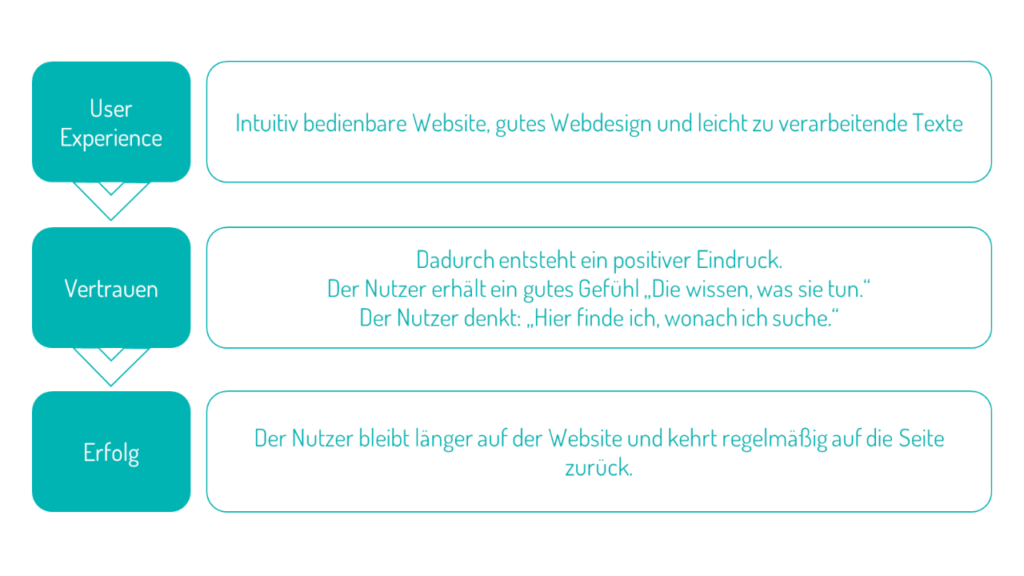Usability stands for the ease of use of a website. That is, how well can all elements of a page be controlled. The key question is: Is the website easy and intuitive to use so that users can quickly find their way around and get the information they are looking for?
User experience (UX), on the other hand, refers to “user-friendliness” or the “user experience”. Hierbei steht also der Gesamteindruck einer Website im Fokus, welcher insbesondere durch das Design beeinflusst wird. Farben, Aufbau und gestalterische Elemente sorgen dafür, dass der Nutzer sich schnell zurechtfindet und angesprochen wird. The user’s subjective impression also plays a role here, how he perceives the design and to what extent he enjoys using the site.

Good web design – the basis for a successful user experience
Users now expect to be able to find their way around a website within a few seconds. If you don’t, leave the site and look elsewhere. That’s why the design and structure of a website is crucial for high usability.
When designing, one should be guided by human perception and the intention of the user. The design must clearly suggest to the user where which functions can be found.
People have certain assumptions in their heads about how to use a website, which are based on experience – so-called learned behavior. For example, we have learned what the shopping cart icon means or we expect that clicking on the logo will take us back to the home page.
In order for the interaction between humans and the website to be successful, these so-called mental models should be taken into account. That’s why new and unusual designs for user interfaces can sometimes be unsuitable because the user simply has no experience to draw on. That’s why new and unusual designs for user interfaces can sometimes be unsuitable because the user simply has no experience to draw on.
UX Writing – Texts for a positive user experience
The goal of UX Writing is to present texts and content in the most user-friendly way possible. Dabei geht es um den Gesamteindruck. In addition to pure text passages, call-to-action (CTA) or navigation buttons are also included in the overall picture.
This creates a positive impression on the user. The better users can find their way around the website, the more comfortable they feel and click from page to page. This increases the length of stay. This user signal in turn has a positive effect on Google’s search engine algorithm.

Basic rules for successful UX writing
- Texts that are easy to process:
Short, precise and easy to understand – the simpler the better. Because many people just skim through website texts. That’s why it helps to divide the text into short paragraphs, lists, graphics and subheadings. This allows the user to quickly identify the most important tidbits even when skimming through the content. - Call-to-actions must be short and unambiguous. Visually, they should stand out clearly.
- Texts should begin with the essential and most important content. This way, users can quickly get an answer to their question. If the text is good, they will be happy to read on to find out more about the details.
- Conclusion
- A good user experience is crucial to ensure that a visitor gets a positive impression of the website when they first visit it. Only then will the user want to stay on the site. This in turn increases the dwell time, which has a positive effect on the ranking.
- A good user experience makes it easier for users to use the website. This means they stay on the page and ideally generate conversions.




